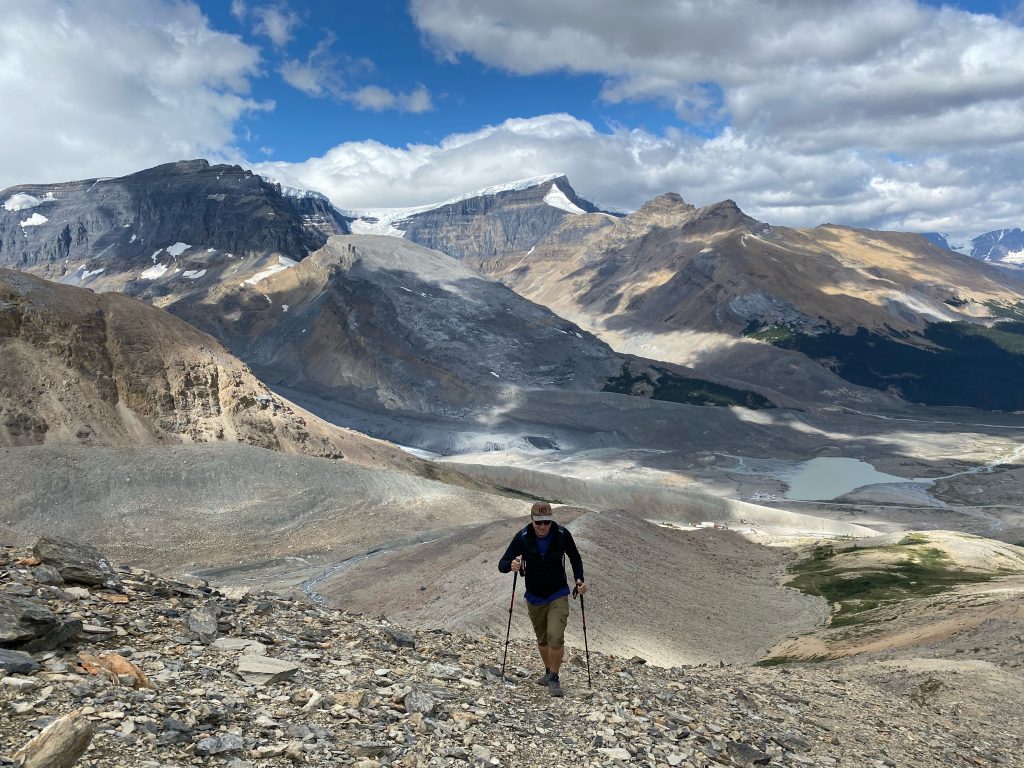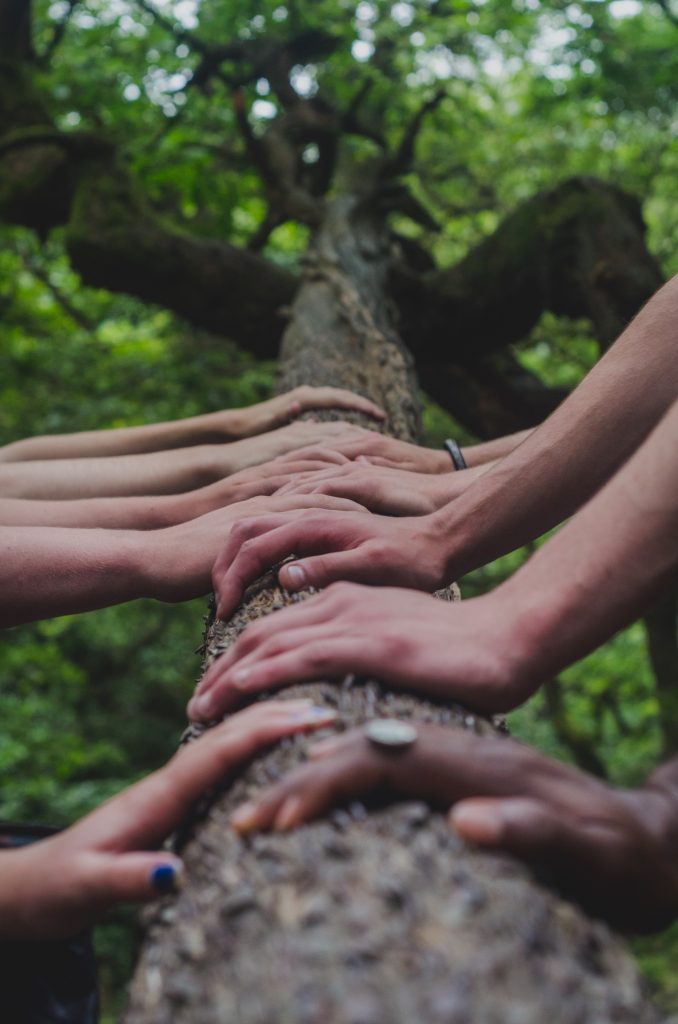Presented in my professional dossier, August 2024.

Since joining UBC, my professional journey has been marked by substantial growth, impactful experiences and notable achievements. As both the Chair of the BSW program and a faculty member in Educational Leadership, I’ve found enrichment and transformation in my roles as a social worker, educator, community organizer and researcher. At the same time, I’ve contributed to the School’s growth by refining programs, processes and courses. This multifaceted experience has clarified my responsibilities and charted a purposeful trajectory for my academic career.
In this section, I outline my vision for my work in Educational Leadership in the coming years. I will continue to focus on social justice by integrating 2S/LGBTQ+ content into social work education and deepening the understanding of 2S/LGBTQ+ issues. I am committed to refining my teaching methods, contributing to scholarly literature and mentoring instructors. Additionally, I aim to foster a supportive community within the School of Social Work and to enhance the institution’s approach to social work education for francophone minorities. Furthermore, I am playing a leadership role in planning and implementing a strategic renewal of the Bachelor of Social Work program.
A. Queering Schools and Faculties of Social Work at UBC and Beyond
I am deeply committed to enhancing the inclusion and representation of 2S/LGBTQ+ communities within the Canadian social work educational system. As part of my leadership, I have spearheaded both local and national initiatives aimed at including queer perspectives throughout the curriculum. Currently, I am leading a groundbreaking research initiative titled Queering Schools and Faculties of Social Work in Canada: Photovoice and Exploring the Experiences of 2S/LGBTQI+ Students (detailed in section 2B), which is supported by the prestigious SSHRC Insight Development Grant. This project aims to amplify the voices and experiences of 2S/LGBTQI+ students, providing valuable insights into their unique challenges and triumphs. In addition to this, I recently completed the Queering the School of Social Work and Beyond study, funded by the SoTL Seed Grant. This study has furthered our understanding of how to create more inclusive and supportive educational environments for queer students.
My dynamic research approach, combined with my role as Chair of the CASWE-ACFTS Queer Caucus, allows me to address critical issues in social work education in Canada. Through these efforts, I am positioned to play a critical role in fostering a more inclusive, equitable and representative educational system for all Canadian SW students. In the future, I plan to expand these initiatives and work with scholars and practitioners to better understand best practices and innovative strategies. I also aim to develop a comprehensive social work curriculum to ensure that educators are equipped with the skills and knowledge to prepare students to work with 2S/LGBTQ+ populations.
Short-Term Goals
- Disseminating research findings: Continue sharing the results of the Queering the School of Social Work study, funded by the SoTL Seed Grant at UBC, to inspire transformative changes within schools of social work.
- Advancing research initiatives: Conduct the Queering the Schools and Faculties of Social Work in Canada research project, supported by the SSHRC Insight Development Grant, to further our understanding of queer experiences in SSW.
- Leadership in advocacy: As Chair of the CASWE-ACFTS Queer Caucus, promote inclusivity and advance 2S/LGBTQ+ perspectives within social work education.
Long-Term Goals
- National research initiative: Spearhead a quantitative research study to deepen the understanding of how Canadian schools of social work prepare students to work effectively with 2S/LGBTQ+ populations.
- Curriculum integration: Develop and implement guidelines and innovative teaching strategies to seamlessly incorporate 2S/LGBTQ+ content into the social work curriculum across Canadian institutions.
- Educational leadership: Introduce and implement queer education curriculum and guidelines at CASWE-ACFTS to enhance Canadian social work education.
As I look ahead, my commitment to advancing this essential work remains steadfast. My vision is to seamlessly integrate queer education into social work training at our school and across the landscape of Canadian post-secondary social work education, ensuring that students are well-prepared to support 2S/LGBTQ+ populations professionally. I aspire to create a learning environment where 2S/LGBTQ+ students and faculty are safe and celebrated for their unique contributions to social work. Through persistent collaboration, innovative research and tireless advocacy, I am dedicated to fostering a more inclusive and equitable society for all.
B. Teaching Is Learning
I began my journey as a social work educator 18 years ago, and it has been a profoundly fulfilling and engaging role. Over the past five years, I have pushed myself to explore new, diverse and often challenging topics. For each course, I strive to provide a cogent and coherent learning experience by aligning innovative teaching strategies with the learning objectives and theories under study.
Throughout the years, I have developed a clear and evolving vision of my teaching approach, which has steadily gained more depth, as reflected in my teaching philosophy. My teaching integrates a synergy of essential elements that are in constant motion, creating a dynamic and effective learning environment.
Looking ahead, I am excited to continue this work and pursue several projects:
Short-Term Goals
- Design a new teaching strategy:Develop an effective teaching approach for Social Work Practice with Groups (SOWK305G).
- Expand involvement:Continue to expand my engagement with adjunct orientation, SWELL, UBC CTLT, SoTL and CASWE-ACFTS to support instructors at UBC and beyond.
Long-Term Goals
- Contribute to the literature:Document and share my teaching experiences, such as Critical Pedagogy, Community of Practice Pedagogy and Project-Based Learning, to enrich the literature in social work education.
- Strengthen my teaching expertise:Consider undertaking a graduate program in education to deepen my expertise.
These goals reflect my commitment to continuous improvement and my passion for advancing the field of social work education. I look forward to the opportunities and challenges that lie ahead.
C. Community Needs to Be Continually Renewed
The SSW has faced numerous challenges in recent years which have impacted our sense of unity as educators and learners. As we move forward, it is crucial to focus on reinforcing the bonds within our community. The COVID-19 pandemic underscored the importance of creating and maintaining a supportive community of students, staff and faculty to provide an optimal environment for working, teaching and learning. Therefore, it is imperative that we continue to forge connections, revitalize our relationships and innovate our practices to create a thriving community.
I am committed to rejuvenating the community spirit at the SSW and UBC by:
- Building bridges: Reflecting on my role as a colleague and member of the SSW, I recognize the importance of building bridges within our community. I will enhance community engagement by initiating and supporting a wider range of events to foster a sense of belonging among all SSW members. Additionally, I will encourage academic and social interactions by creating spaces for informal gatherings and interdisciplinary discussions to bridge gaps between various groups.
- Empowering students: Student leadership is crucial for fostering a vibrant and engaged community. By supporting student-led groups and activities, we can nurture a culture of camaraderie, mutual support, inclusivity and advocacy for social justice. I will continue to provide support and resources for student initiatives, renew the mentorship program, offer workshops and training sessions on leadership skills, and celebrate our student leaders’ achievements through awards and public acknowledgment.
- Supporting diversity and inclusion: Working towards a more diverse and inclusive environment will strengthen our community. I will continue to support our community in developing and renewing policies to promote diversity and inclusion; in providing sessions on cultural competency, anti-racism and inclusive practices for all community members; and in organizing events and activities that celebrate our community’s diverse backgrounds and cultures.
D. Francophones and Social Work
My journey as a Québécois and francophone in a minority context has profoundly shaped my experiences, particularly during my time at UBC. Collaborating with anglophone and international colleagues has encouraged me to explore my cultural heritage more deeply and to appreciate the nuances and richness that define it. As a francophone faculty member at an anglophone university, I bring a unique perspective to social work education, leadership and research.
In my research, this dual identity serves as a bridge, fostering cultural and academic connections that enhance our collective understanding. In recent years, I’ve reconnected with francophone peers and invited them to collaborate on a Canadian educational initiative that embraces both anglophone and francophone narratives.
As a teacher, I eagerly delve into the history and practice of social work in Québec, sharing its strengths and challenges while drawing parallels and contrasts with other contexts. Enriching our curriculum with content that illuminates the realities of francophones in Canada equips our students to serve this community with sensitivity and competence. I’ve also engaged with francophone faculty from other social work schools and gained valuable insights into minority contexts. These interactions have fostered new academic partnerships and deepened my exploration of this subject. In the upcoming year, I plan to develop training opportunities for instructors at the School of Social Work, focusing on practice with francophones in minority contexts.
My commitment extends beyond academia. I’m actively involved in establishing the first government-funded community health clinic for francophones in British Columbia. My role includes shaping social work services to align with these communities’ needs.
Through these efforts, I aim to reinforce the essential role of social work schools in preparing practitioners to effectively support francophone minorities on their life journeys. My dedication remains unwavering as I leverage my professional background and the distinct francophone approach to social work to enhance both our educational landscape and community services.
E. Strategic Renewal of the Bachelor of Social Work
I am proud to serve as the Chair of the Bachelor of Social Work at the UBC School of Social Work. When I first joined the school, I was appointed to this position and spent the initial year learning and understanding its diverse responsibilities. In the following years, I led different initiatives as outlined earlier in this document. As Chair, I had to be adaptable and creative in navigating the challenging years of the COVID-19 pandemic. We received an encouraging accreditation report in 2023 that reaffirmed our pride in the BSW program’s progress. This very positive accreditation is due to the hard work of many people under my leadership as Chair.
Now, with three years of student data, a new accreditation policy from CASWE-ACFTS and many important initiatives at the School, it is a critical time for a strategic renewal of the BSW. In section D, I outline the first steps of this renewal. I am dedicated to proposing strategic enhancements for our BSW program with an emphasis on cohesion and collaboration. To achieve this, I draw upon a deep understanding of our students, a thorough knowledge of the BSW curriculum and a comprehensive grasp of the School of Social Work and UBC. By leveraging local expertise and considering the perspectives of various stakeholders, I aim to drive a renewal process that moves our collective vision forward, acknowledging the important changes we can establish as a learning community. I especially value changes that help our school and our profession to better address inequities and to promote social justice and communities where everyone can thrive.
Conclusion: Growing, Thriving and Unique
Over the past several years, I’ve diligently sought a harmonious balance between my professional responsibilities and passions. As I navigate my faculty role, I recognize my immense privilege—the opportunity to shape the social work profession and make meaningful contributions to society. Throughout my career, I’ve remained steadfast in my dedication to others and to the principles of community-building, compassion, freedom, dialogue, shared power and social justice. These values are not mere abstractions; they are deeply woven into the fabric of my life. When I honour them, I find health, happiness, creativity and a sense of empowerment that borders on fabulousness (Reynolds, 2019). My years at UBC have underscored the importance of authenticity. As both an educator and a lifelong learner, I’ve discovered that staying true to my experiences and convictions is non-negotiable. With renewed self-awareness and unwavering confidence, I eagerly continue this transformative journey. The growth I’ve witnessed in my work fuels my optimism—I am poised to contribute meaningfully to the School, UBC and the broader landscape of social work education.



